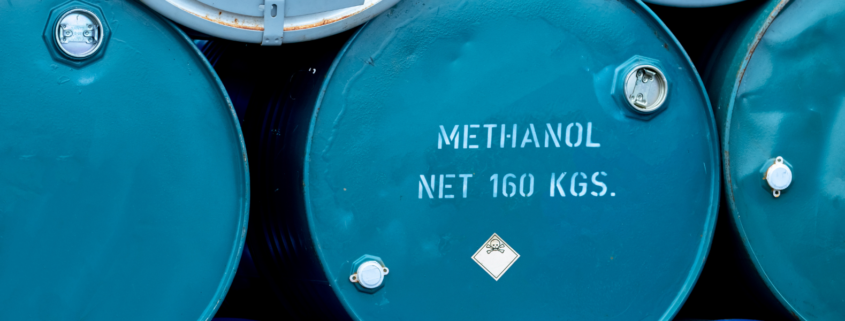Methanol vs Ethanol: A Comparison of Fuel Properties
Methanol and ethanol are two alcohol-based fuels that have gained significant attention as potential alternatives to traditional fossil fuels. Both are considered renewable and offer cleaner combustion, making them attractive options for reducing greenhouse gas emissions and promoting sustainability. However, their eco-friendly chemistry and abilities- do not make them impervious to drawbacks. This blog will compare the properties of these two potential fuels and examine their applications in various sectors.
Methanol vs Ethanol: Fuel Properties
Methanol is the simplest alcohol and contains a small number of atoms:
- One carbon atom
- Three hydrogen atoms
- One oxygen atom
This simple alcohol has a lower energy content per unit volume when compared to gasoline and ethanol. It is produced from various feedstocks (such as natural gas and coal). However, it is toxic and can be harmful if ingested or inhaled.
Ethanol consists of several atoms:
- Two carbon atoms
- Five hydrogen atoms
- One oxygen atom
It is primarily produced through the fermentation of sugars and starches found in crops like corn and wheat.
Advantages of Methanol vs Ethanol
Each fuel has its benefits compared to the other.
Methanol has a high-octane rating, making it suitable for use in high-compression engines/in fuel blends to enhance performance. Methanol combustion produces lower carbon monoxide emissions when compared to gasoline, contributing to cleaner air.
Ethanol, on the other hand, is biodegradable and less toxic than methanol, making it safer for handling and accidental spills. It can also be blended with gasoline in different concentrations (i.e., E10, E85), allowing for flexibility in fuel formulations and reducing dependence on fossil fuels.
Applications of Alternative Fuels
Alternative fuels, such as methanol and ethanol, have numerous applications.
Methanol, with its high-octane rating and versatility, finds applications in various industrial processes. It is used as a cleaner-burning fuel option, contributing to reduced carbon monoxide emissions and improved engine performance.
Ethanol, similarly, stands out as a renewable resource primarily produced from plant-derived feedstocks. The chemical finds extensive use in transportation, power generation, and industrial sectors, offering reduced greenhouse gas emissions and serving as a component in fuel blending with gasoline.
More Information About Sustainable Fuels
As businesses prioritize sustainability and environmental responsibility, incorporating methanol and ethanol into their operations presents an opportunity to achieve cleaner solutions. Knowing the differences between methanol vs ethanol, such as their fuel properties and advantages, ensures the correct selection for your business needs. For assistance finding the right solution to your chemical needs, Ecolink has been providing safer solutions for over three decades! Visit our online store to browse our products or request a sample today!



